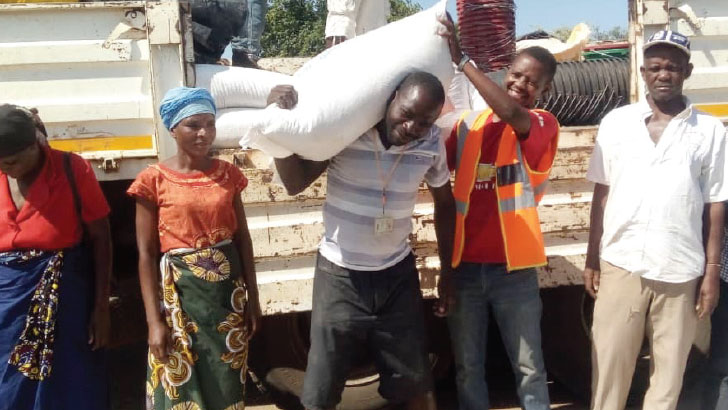Dodma starts relief programme
The Department of Disaster Management Affairs (Dodma) says it has started responding to the needs of hunger-stricken populations, beginning with provision of cash transfers to people in Chikwawa.
Dodma spokesperson Chipiliro Khamula said the rest of the affected population from the 1.5 million initially projected population will start getting assistance from the third week of January and will also get assistance in February, 2022.

Initially, the programme was supposed to be rolled out in Nsanje and Chikwawa districts but Khamula said there were some logistical challenges that delayed the start of the programme in Nsanje.
He said: “However, this is under control and affected families will get double ration this month, to cover for the month of December 2021and January 2022. The minimum cash transfer amount is K18 000 per month and it goes up depending on the prices of food items on the market in targeted areas.
“There is also a possibility that the response plan will be reviewed following the late onset of rains, with reports of dry spells in some parts of the country.”
The number of people projected to face hunger between January and March has increased by 200 000 from 1.4 million from November to December to 1.6 million, according to the Integrated Food Security Phase Classification (IPC) report.
The increase is due to a rise in the number of food insecure people in Balaka, Lilongwe and Kasungu districts from of 180 749 during the last analysis in August to 337 630 during the latest analysis.
In Balaka District, the figure has jumped from 47 738 to 71 607 while in Kasungu District, it has jumped from 45 346 to 90 693 and in Lilongwe from 87 665 to 175 330 people.
The IPC report further indicates that out of the total 1.65 million people facing acute food insecurity in the country, about 1.47 million are in the rural areas and district centres while 186 254 are in the country’s four cities of Blantyre, Zomba, Lilongwe and Mzuzu.
The latest analysis further warns that the increase in new Covid-19 cases will likely worsen an already dire situation as this may lead to disruption of income for so many households, especially the urban poor.
The response programme will be implemented in two modalities. Affected populations in Nsanje, Chikwawa, Neno, Balaka, Ntcheu, Likoma and Phalombe, and some affected populations in Mangochi and Machinga will get cash transfers while the rest of the districts and some parts of Mangochi and Machinga will get in-kind support in form of maize.
While the latest Famine Early Systems Network report for December 2021 has said following the revised forecast for a below-average main rainy season, Malawi should expect below-average crop production this year.





